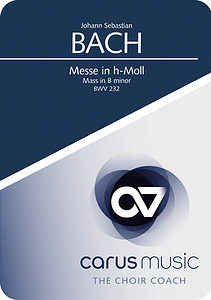News about carus music
A workshop report from Business Development at Carus
Are you one of the many choral singers who practice your choral part with carus music, the choir app – whether it’s intricate Bach coloratura passages, or the harmonic surprises found in Distler? Or are you one of the many choral directors who regularly recommend your choir to practise using carus music? Then right now, you might be wondering why the android version is no longer fully available. Oh well, major events cast their shadows! We have plans for carus music, our choir app. Iris Pfeiffer, who is responsible for the app as head of the Business Development Department, gives an update and reveals what you can look forward to in the near future!
Do you remember? At the 2015 Frankfurt Music Fair we launched carus music, the choir app. Immediately after the launch we received the first enquiries: can we also use it on a PC? No, unfortunately this was not possible! At that time, the signs were all pointing to “native apps”. Programmed for smartphones and tablets on iOS and Android platforms, the resources of the devices could best be used in this way. The choir app quickly became widely used: over 80,000 choral singers from all over the world have used carus music since its launch, and over 100 choral works are available in the app.
But there is another side to the story for Carus as a developer. Every year updates to the operating systems for Android and iOS have to be dealt with, and these constantly require adaptations to the app. Our Berlin app agency sprylab, which helped launch the app in 2015, constantly has to respond to the new technical possibilities and has to continually adapt the framework in which the carus music player runs. For Carus this means a permanent investment in internal and external capacities in order to keep the app functional and operational for users worldwide. We would rather invest in further development and expanding the repertoire. So every year we have to weigh up, should we commission the update or can we risk not going along with the various updates this year? Where can we expect problems for our users?
Iris Pfeiffer verantwortet bei Carus die Bereiche Business Development & Marketing.
Then Corona arrived at the beginning of 2020, and with it a government-imposed ban on singing for choirs worldwide. During the first lockdown we could still feel the motivation: many singers continued to practise, and prepared new works “working from home”. But by the second lockdown at the latest, this was all over. Neither practice aids nor new choral sheet music (the sales of which are our income) were needed. The economic situation for Carus became increasingly difficult. For us in Business Development, this meant that we focussed on a project we had been planning since 2019 – an extensive, up-to-date webshop where our customers could now purchase digital products, as well as our range of printed music and CDs. Since October it has been possible to purchase music editions to download, plus recordings and additional materials such as introductory texts and singing texts. We were the first publisher to introduce the innovative AODP communication protocol for the sale of digital publications, the industry solution for German music publishers and music retailers from the German software company De-Parcon. At the same time the corresponding range of digital sheet music editions for participating music retailers was released in the International Database for Printed Music & Musical Products (IDNV). This new range was immediately well-received. There was huge pleasure when the first purchase after the launch of our new webshop was a sheet music PDF. Since then, every day we have sold digital sheet music editions, audio practice aids, and texts, almost trouble-free for our Customer Service and Distribution departments.
At the same time it was clear, in 2020 it was not going to be possible to continue investing in maintaining the app at the same time as launching the webshop and selling digital editions. We were aware of the risk, but at this point we had to play for time. Unfortunately, in April 2021 the first “warning” came from Google. A technical implementation, not even particularly significant?, was regarded as obsolete and no longer acceptable following changes in Google’s guidelines. Finally, in June, our choir app carus music was removed from the Play Store by Google. Since then, users who have already installed the app can continue to use previously-downloaded works, but cannot purchase any new works. And new users, who have perhaps been recommended the practice aid by other choral singers, can no longer find the app in the app store if they use an Android device. Apple users still have all their options.
But we love our app and the opportunities it offers choral singers. Since the first weeks of spring 2021, detailed consideration has been given to rebuilding the app as a browser-based version. Crucial in making the decision was the fact that we would gain the required flexibility with the new technical basis, so we can develop new features in the future and support you as users even better. And of course, the practice aid would then function everywhere where a web brower is installed. Even the prototype of carus music ran in a browser. Web apps, as the browser-based applications are also called, are created in the programming language HTML5 (for the structure and the content), CSS3 (for the design) and JavaScript (for the interaction with the device’s hardware). The prototype for our app was a Bachelor’s dissertation in 2013 by our then student trainee Simon Gebauer, published under the title “Entwicklung eines Prototyps zur Abbildung von Musikeditionen zum Export multimedial angereicherter Notenpartituren für mobile Endgeräte” [“The development of a prototype for the display of music editions for exporting multimedia-enriched music scores for mobile devices”] (Stuttgart Media University, 2013). In the introduction to his Bachelor’s dissertation, Gebauer wrote: The wealth of information which Carus-Verlag has on works should also be made available in the future digitally and in multimedia form as “sounding study scores”. The sounding study score is a version of the printed music editions enriched by the addition of multimedia feaures, conceived for mobile end devices. As part of this dissertation, two prototypes of sounding study scores were developed, one in the form of an electronic book, and another as an app. The aim of this is to demonstrate the limits of possibilities of both formats, and to compare the implementation of these with each other.
our new carus music product images
What a positive surprise that the “sounding study score” developed in 2013 still runs in current browsers eight years later! However, with the development of the native app (2014/2015) a number of features resulted which no choral singer would now wish to forego. Initial considerations for a browser-based further development in 2017 still failed over the question of how to offer our customers the digital content in the webshop at that time. But now we have come full circle to our AODP implementation in the webshop! And just at the right moment, the right funding programme came on stream as part of the NEUSTART KULTUR framework, which supports not only music retailers and instrument manufacturers, but also music publishers to receive support on their route to digitisation. So we were able to go ahead with our new carus music project, despite short-time working in the publishing house caused by the pandemic. The new project combines the best of AODP implementation in the webshop with the further developed prototype of the app. Headed by the Karlsruhe-based developer Marian Saeger, who has previously programmed several tailor-made applications for our company, a carus music app closely linked with the webshop is currently being developed.
In the first step, the functionality and layout of the native app are reproduced in the web app and at the same time their usability is optimised. Data packages have to be re-packaged and prepared for download, and some functions and presentations in the webshop have to be adapted. The new distribution channel for carus music via our webshop also means that in future, we can respond to customers’ wishes better, for example, when purchasing practice aids for the whole choir.
With the browser-based application, in future the popular practice aid carus music will be able to be used in all current and popular browsers on any mobile or stationary device. And so the long-held wish to be able to use it on PCs will be fulfilled! On 1 September 2021, in time for what we hope will be the beginning of the new choral season, we will relaunch the app under the name “carus music, the choir coach for all”.
And as soon as the choral crisis caused by the pandemic is over, and we have more budget available, we will finally be able to develop carus music further and not just maintain it. We have plenty of ideas, and we look forward to hearing your input!
Iris Pfeiffer, July 2021






Leave a Reply
Want to join the discussion?Feel free to contribute!